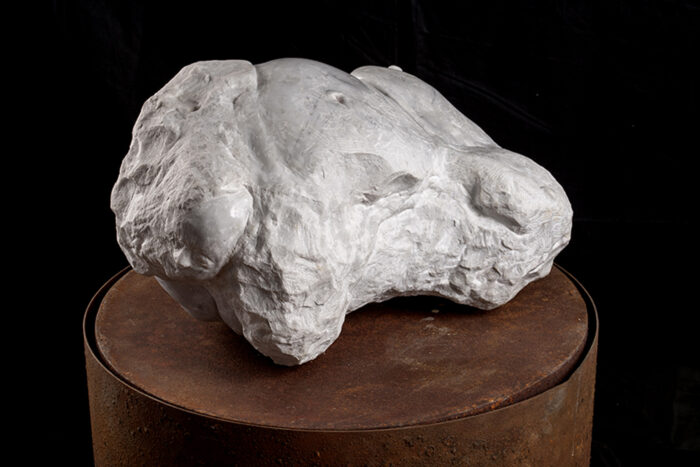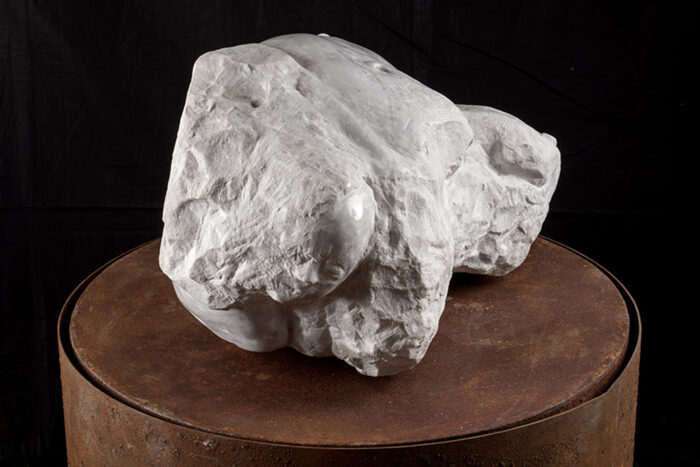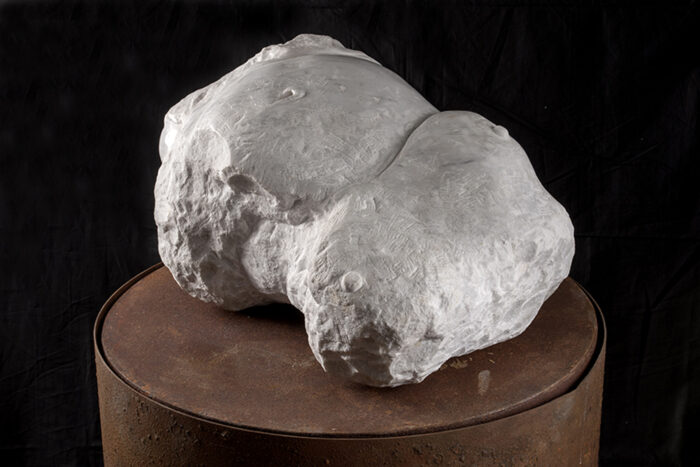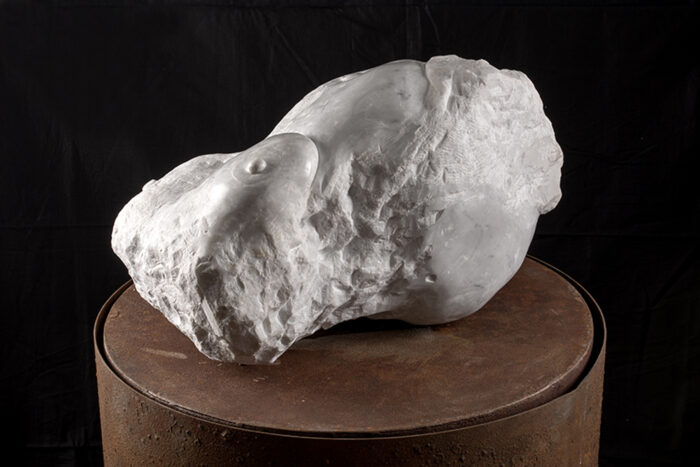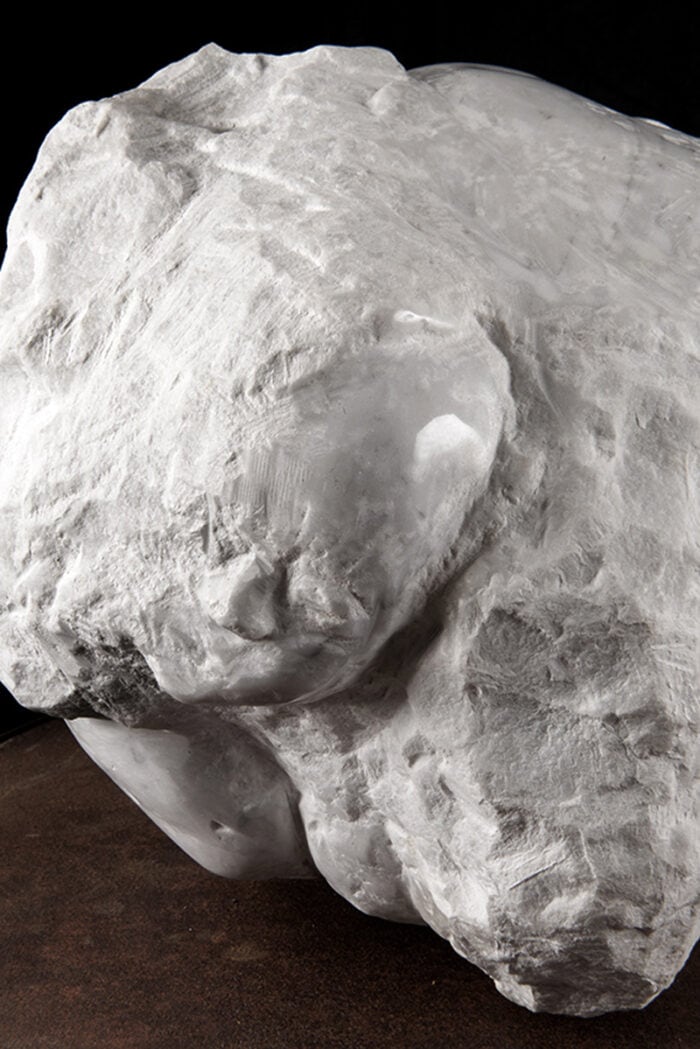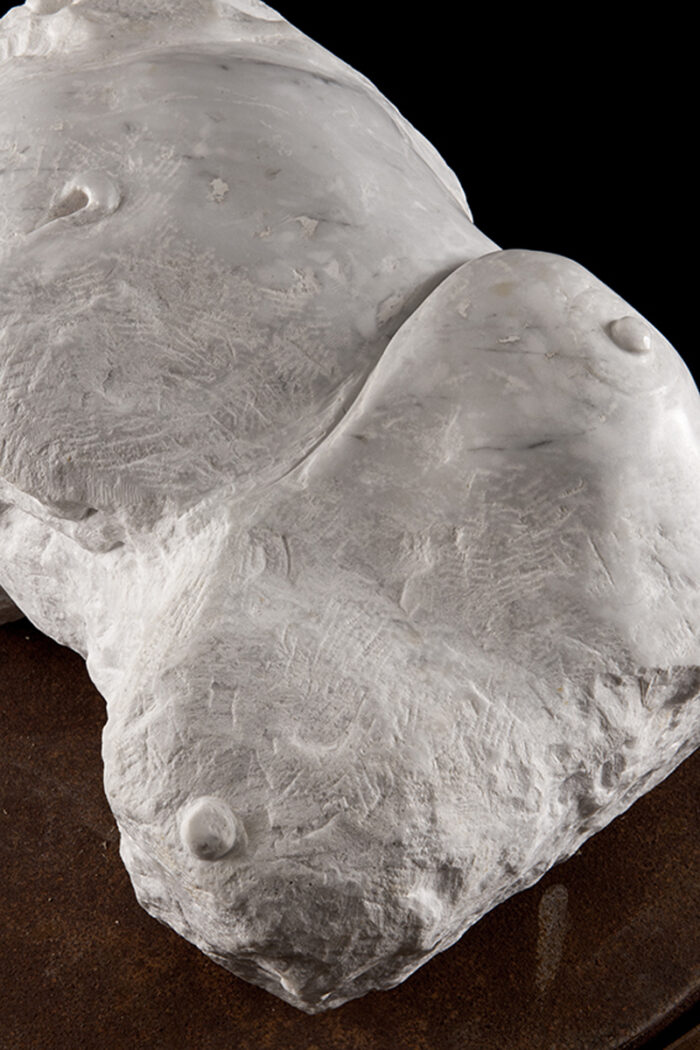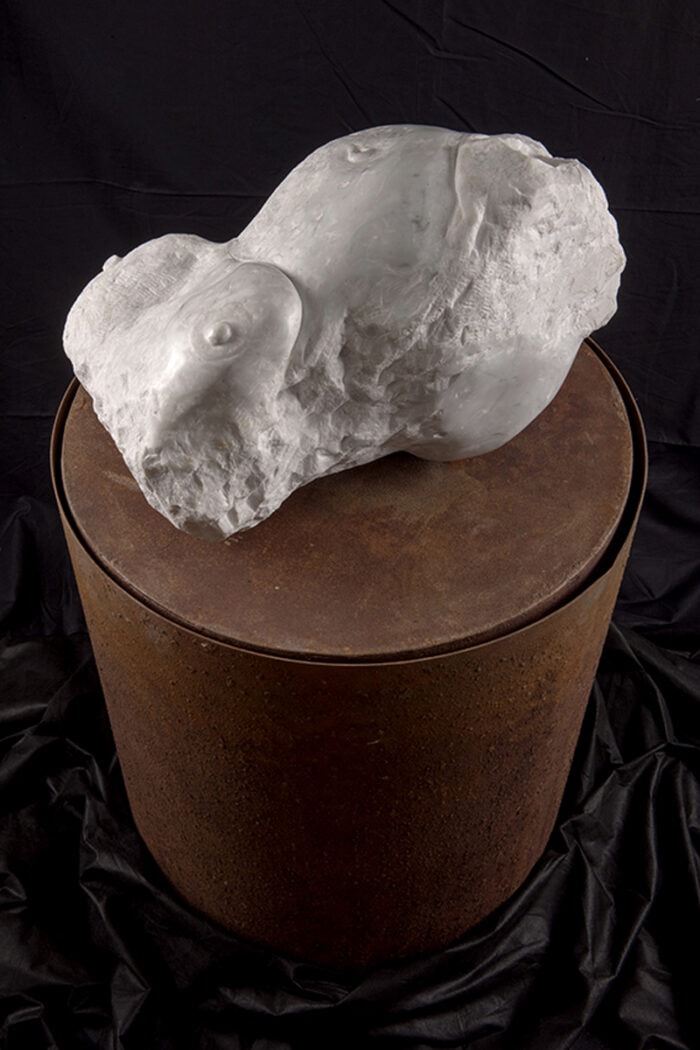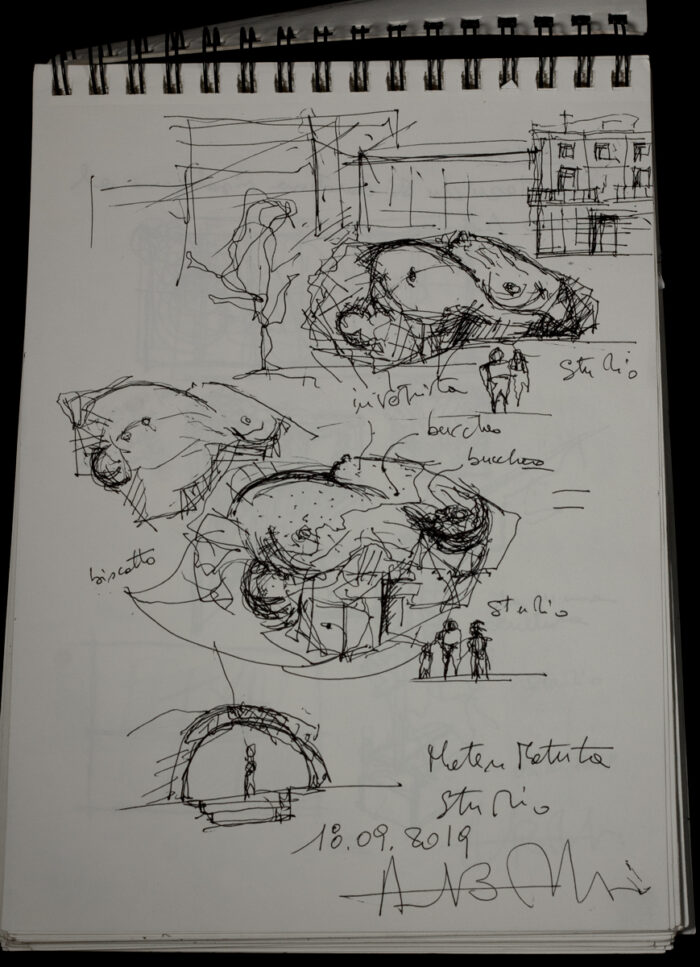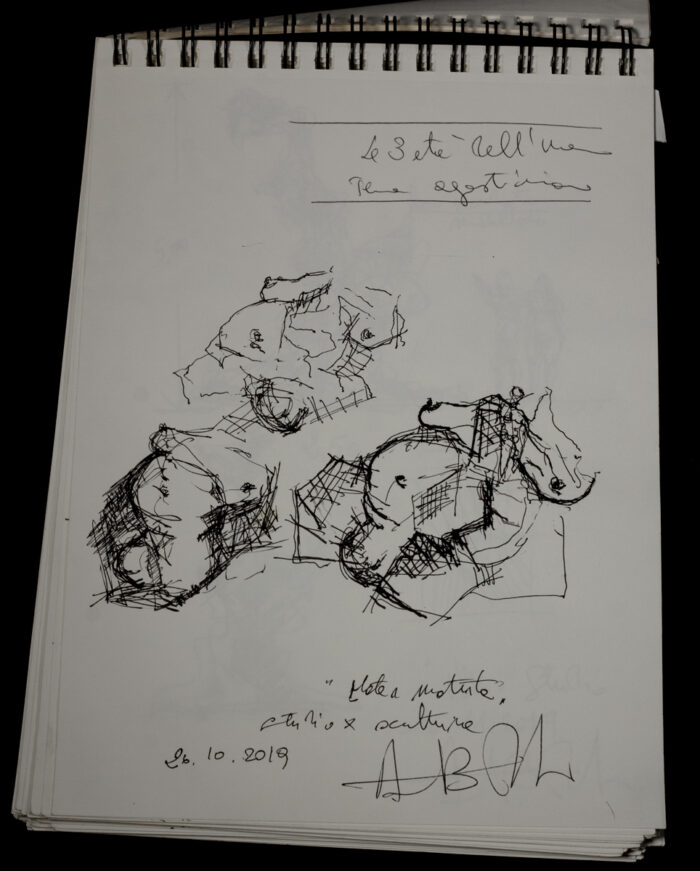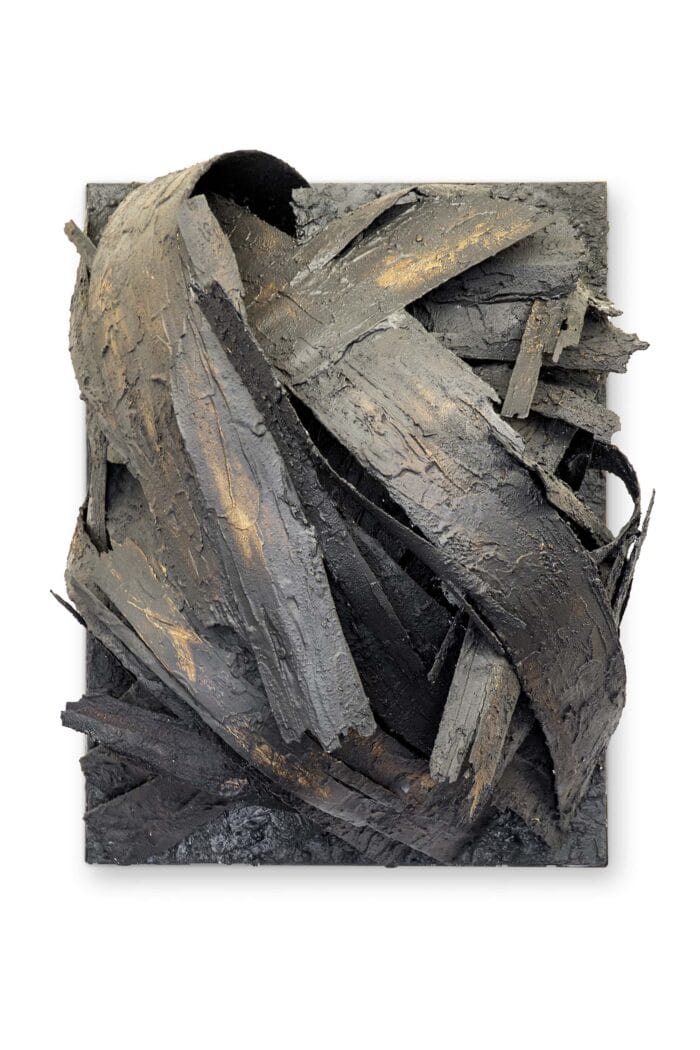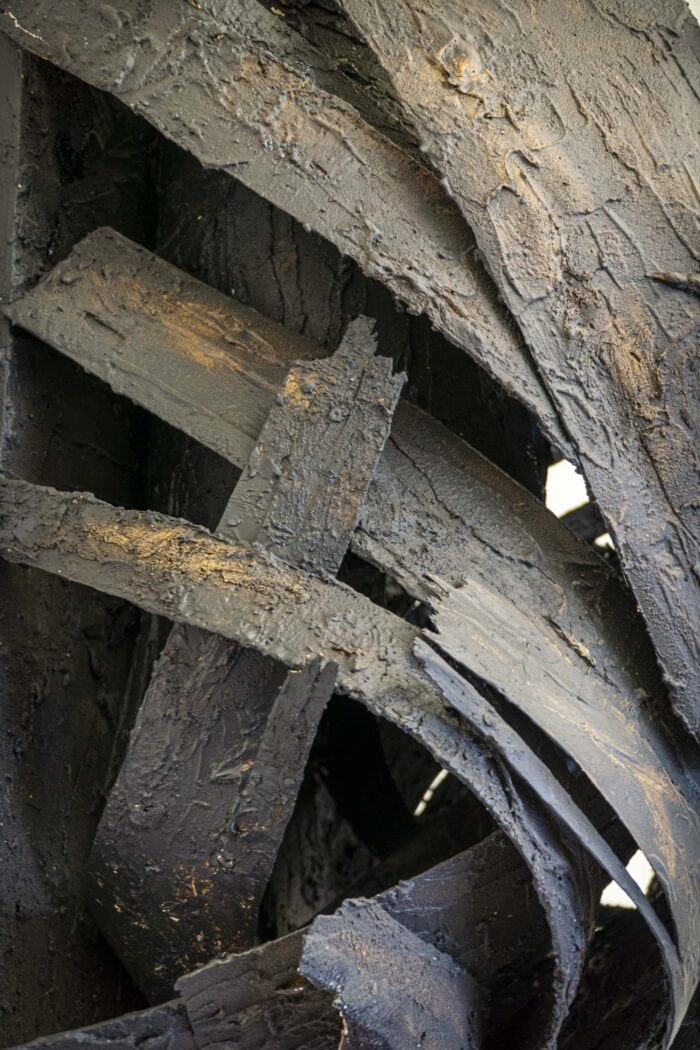03 Aug VI Cycle – The Short Term Governs the World
Sixth Cycle
The Short Term Governs the World
Each series follows and intersects one another without ever coming to an end. I follow one logic: understanding the problems and the facts from which problems arise. I attempt to represent them in my work as an artist. One must start from here to mark an alternative antagonistic, artistic and cultural path. I follow the logic behind emotions and reason, not the kind of logic that has no soul: that of numbers, percentages, algorithm, statistics, fake conveniences of the spread that decides for everybody. An artist cannot find satisfaction in presenting their own formal experiments, effects caused by events or own existential condition as works of art. Since 1947 the entire art scene has been entirely conveyed and managed by the political nature of”power” through less democratic tools available to us (For example the episode of abstract expressionism and the C.I.A). In this historic moment, art itself must be political, creating content through the works and more. Artists must put politics in the strongest sense, in their works. The entire artistic production that isn’t inspired by this principle, which is extremely important to me, must be considered outdated, diminished to a simple piece of decoration or to a terrible financial operation run by rich people for the rich people.
“What Remains of Development” is the series that consists of my latest works. The installation “Suits and Steel” is the most representative work in the series. A work dedicated to the population in the south of Italy: Taranto and its territory that, in the name of “development” was seriously and perhaps irreparably damaged. But the work must be considered universal because what happened to that city happens worldwide nowadays. And then? How should my work continue?
I was driving my car listening to a programme on the radio when the programme was interrupted: the “Morandi” bridge in Genova collapsed, entirely, in a matter of seconds. It was an apparently unpredictable tragedy that is still not properly appreciated neither in it’s grandeur nor in terms of human lives. I studied architecture in the seventies and I remember extremely well that in technology class we had studied and analysed that engineering construction to the finest detail. We had studied it especially for the technical innovation used (prestressed reinforced concrete) that enabled the construction of daring structures. In about 60 years, the bridge went from an example of modern technological conception to an entirely shapeless mass, “informal”, a pile of messed up rubble: iron and cement that isn’t put together by a combination of complex mathematical formulae anymore, but a pile of chaos that imprisoned human life.
It wasn’t difficult for me to pinpoint straight away a close relationship with the iron and steel plant of Taranto. Because after all, after sixty years, even that had become an example of development, of growth and wellness within a tool of death and destruction. Sixty years are less than the average life of a human being, they’re less than one “moment” in a human’s life. How is it possible that despite the progressions made by mankind over the last 200 years the effects of this progress were resolved in a mad sense of self-destruction? Simply because it was never about true progress, but about the development of the technologies.
If you don’t support the development of technology with an adequate growth in thought, it will inevitably result in damage. Nowadays it’s the short term that rules the world because it’s “profit” that rules the world. Profit requires quick results in order to make sense. In the last two centuries “profit” appropriated every expression of human life, influencing it. It even contaminated art. This is what led to my latest series, following on from the previous one and connecting with every other series I created (The Social Animal, The Construction of Destruction, Resisting Beyond and Saving Oneself from Shipwreck).
Men don’t know how to be forward-thinking. They don’t know how to think full stop. One condition, this one, that didn’t appear so natural was caused in exactly that way. The nowadays infamous “dominant class”, more and more scarce from a numerical point of view yet richer economically and, unfortunately, stronger politically, in order to continue to be so, to maintain and increase the power it has, must call off any critical capability of others and obtain their consensus.
In order to do so, one must begin with the oblivion of history; if necessary one should delete it from one’s mind or modify it arbitrarily depending on one’s particular interests. If you delete the memory of an individual, you delete the same story.
That’s how you get rid of their capability to relate to others, their critical capability and with that, their way of thinking, of planning the future, of understanding the process in order to change it. They will only respond to immediate requests and those shall be elaborated by those who have the power in their hands. Everything will be inflicted through subliminal messages scattered about with the new and refined digital technologies. It shall have to stem from the same dominant class that will manage the population’s disapproval only to steer it according to their own necessities and later narcotize it, empty it out into the petitions that made them who they are: no violence, no apparent repression, only the manipulation of awareness.



